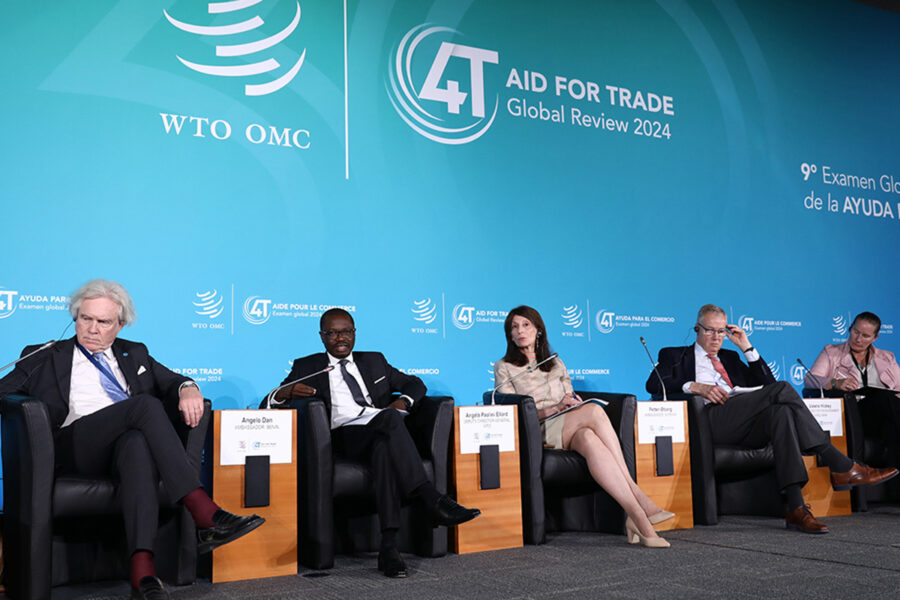It may seem a world away, and of little relevance to UK fishermen, but the drive to end harmful fisheries subsidies took another step forward recently.
A successful conclusion to the deal should, in theory at least, cut off subsidies paid to some of the largest IUU fleets in the world, creating a fairer playing field for UK-caught fish.
Landlocked Kazakhstan – does it have a single registered fishing vessel? – became the 80th nation to ratify the World Trade Organisation (WTO) agreement to phase out harmful subsidies last week. This coincided with the release of a report from the WTO that highlighted advances in the use of development aid to support moves towards sustainable fishing, but said that these were dwarfed by the subsidies paid out by nations such as China, that encourage overfishing and distort fair market competition.
Speaking at an Aid for Trade Global Review event on 27 June, WTO deputy director-general Angela Ellard said: “The WTO Agreement on Fisheries Subsidies, once in force, will prohibit certain forms of harmful fisheries subsidies.
It will serve as a powerful tool for contributing to the sustainability of these precious resources. It can also contribute to ensuring food security for the many millions of people who rely on these resources.”
The report launched at the event found that between 2010 and 2022, $6.2bn was committed to support marine fisheries. Of that total, 71% ($4.4bn) was assistance directed at supporting the design and implementation of sustainable fisheries policies and practices.
The report also highlights the growth since 2018 of funding for fisheries projects incorporating food security and nutrition as central objectives, demonstrating the vital role that fisheries have worldwide, contributing as they do over 15% of all animal protein eaten.
However, the report notes that annual development support of this type for fisheries – ‘good subsidies’, if you like – is dwarfed by the estimated $22bn spent globally on harmful fisheries subsidies – a 63-fold difference.
“What a gamechanger it would be for the ocean and fish stocks if we were able to turn harmful fisheries subsidies into support for sustainable fisheries,” Angela Ellard said.
Thirty-two more nations need to ratify the agreement to allow it to come into effect. It will be legally binding, although the WTO was weakened by Donald Trump during his US presidency, when he blocked the appointment of judges who hear disputes between WTO members.
Ambassador Petter Ølberg of Norway, one of the largest donor countries in the fisheries sector, told the meeting that fisheries can contribute more than it does today if developing governments are better supported in their fisheries management. Norway’s assistance includes support for stock assessments, fisheries management and enforcement, and for combating IUU fishing, he said. “You need information, you need capacity building, and we are providing just that.”
This story was taken from the latest issue of Fishing News. For more up-to-date and in-depth reports on the UK and Irish commercial fishing sector, subscribe to Fishing News here or buy the latest single issue for just £3.30 here.
Sign up to Fishing News’ FREE e-newsletter here.








